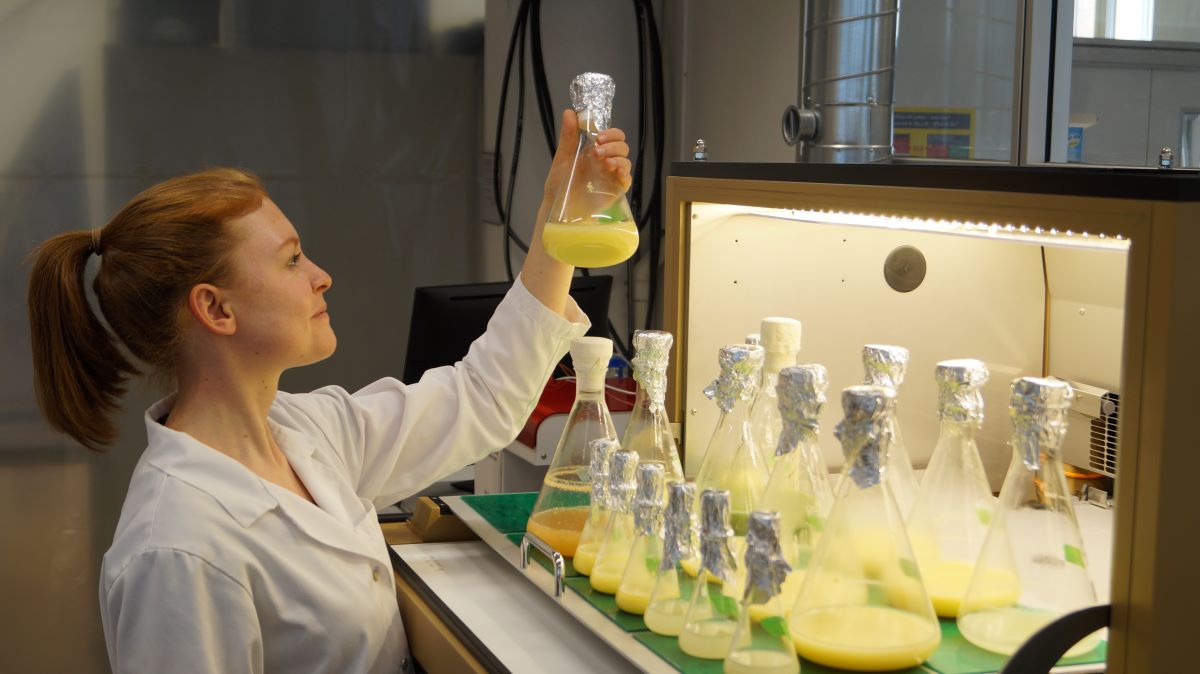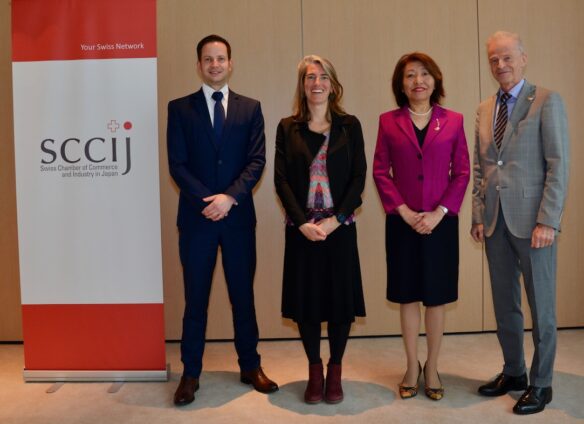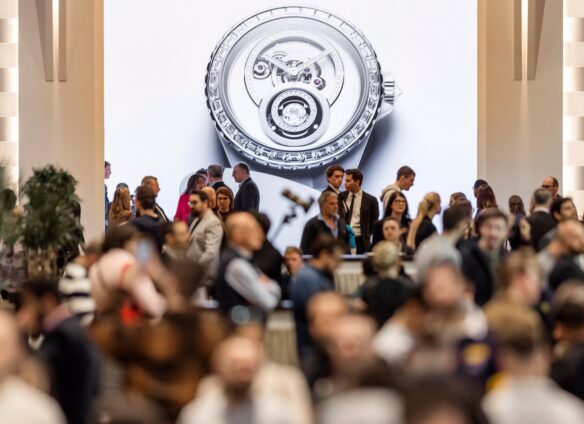Tokyo (SCCIJ) – Bühler, a multinational plant equipment manufacturer for food processing and advanced materials based in Uzwil, Switzerland, is working on an industrial prototype for the urban production of microalgae proteins. Now, Bühler’s technology is utilized for a microalgae protein project at a center of the Swiss Federal Institute of Technology Zurich in Singapore.

Iris Haberkorn, project lead and senior scientist at the Singapore-ETH Center, checks a microalgae production (© Bühler).
“Stellar” technology
In 2050, the earth will have to feed two billion more people than today. How can this be done without overtaxing the planet? One promising resource is algae. Not only are they healthy and nutritious, but they also help protect the climate. With this background, Bühler has developed the “Stellar technology” to increase the production yield.
The first of its kind, Stellar technology uses nanosecond pulsed electric field processing to grow single-cell cultures, like microalgae, at a faster rate without biologically altering them. Stellar Gemini is the name of the device that enables the application of these pulses. Bühler is known for plant and equipment and related services for processing foods and manufacturing advanced materials.
Natural process
This new technology has several advantages: It drives process efficiency by up to 30%, by either increasing the capacity of the installed base or reducing resource requirements. It can process different organisms and strains from the laboratory to an industrially relevant pilot scale. Besides, it uses a natural physical process in addition to or as an alternative to feedstock optimization.
“The Stellar technology will enable us to deliver industry-relevant results to improve the eco-efficiency and productivity of microalgae supply chains,” says Iris Haberkorn, project lead and senior scientist at SEC. “This is a step forward towards securing the supply of food and establishing resilient, sustainable agri-food systems.”
Application in Singapore
Now, Bühler is deploying the Stellar Gemini system at the Urban Microalgae Protein project laboratory run by the Singapore Centre of the Swiss Federal Institute of Technology Zurich (ETH). This project aims to develop a sustainable, urban single-cell protein production platform and microalgae-based food concepts with taste and nutrition profiles that meet consumer preferences.
The three-year project is based in Singapore and supported by the National Research Foundation Singapore (NRF) under its Campus for Research Excellence and Technological Enterprise (CREATE) program. The deployment of the Stellar technology system is a result of the strong longstanding collaboration between Bühler and ETH Zurich, which supports the microalgae project with know-how, experience, and expertise.
Ambitious food goal
The project itself aims to enhance Singapore’s food security by establishing resilient, sustainable, and cost-effective agri-food systems using microalgae-based food products. In Singapore, the ambitious ‘30 by 30’ target calls for an increase in capability and capacity to grow 30 percent of total food needs locally and sustainably by 2030.
Given the constraints of its urban environment, meeting this goal through traditional agri-food production methods will be challenging. As single-cell production systems such as microalgae require little arable land, they could play a major role in achieving this goal. The Stellar Gemini system is a strategic element in achieving this ambition as it improves microalgae cultivation and enables microalgae to become a viable source of macro- and micronutrients.
Text: SCCIJ based on Bühler material





























